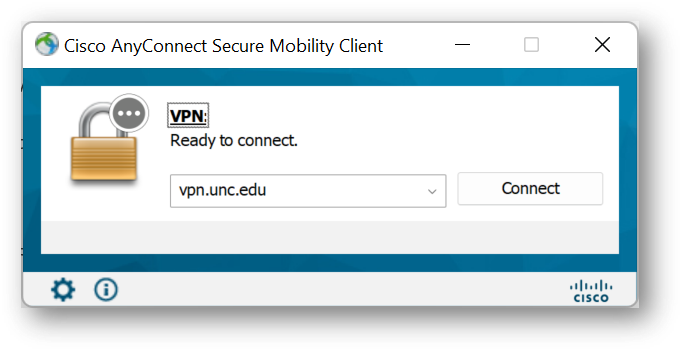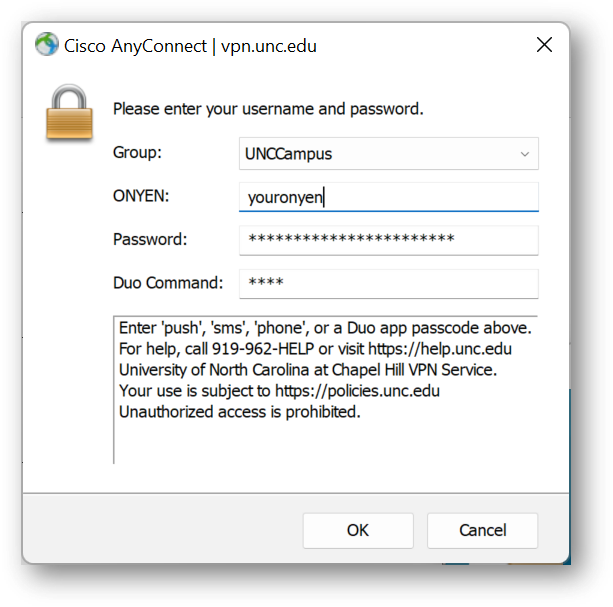
Tools for Information Literacy
Task 01c
Be able to fully engage in client-server relationships on the UNC network
by installing a VPN connection
Off-campus access to the UNC networks requires the use of a Virtual Private Network (VPN).
A Virtual Private Network (VPN) provides an encrypted connection (secure tunnel) from off campus to the UNC-Chapel Hill internal network. VPN allows you to access campus applications and work securely, just as if you were physically on campus. Access to some campus applications from off campus require the use of VPN (i.e., Virtual Computing Lab, Virtual Lab, and ConnectCarolina).
Install a VPN
Go to ITS's VPN installation page, determine your client's operating system, and then download and install the Cisco AnyConnect VPN Client that is appropriate for your laptop, tablet, and/or phone.

You need to connect to vpn.unc.edu

Once there you need to sign in to UNCCampus using your ONYEN and your ONYEN credentials, plus your two-factor authentication.

When you have successfully installed it on your device, put a screenshot of the installation in your assignments space in Canvas to let us know that you have it.
We may as well begin here to use a consistent file naming convention.
The structure takes advantage of how operating systems want to index things.
Note: every file name must end in a dot followed by a file extension
lastname-firstname(s)-YYYYMMDD-taskNN-descriptor.file extension
An example might be
johnson-pat-20240110-task01c-vpn.jpg
Using this model, the files will sort first by last name, then by first name, then by date.